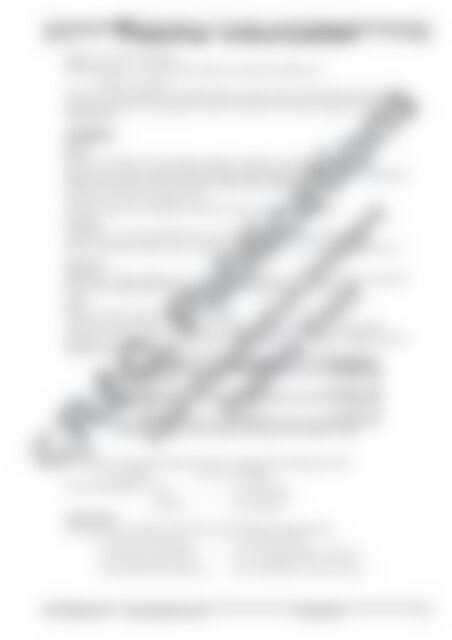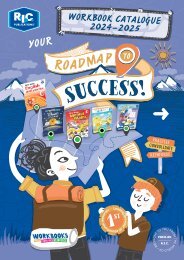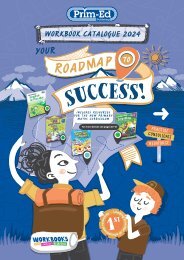20853_Editing_expositions_Years_2_and_3
You also want an ePaper? Increase the reach of your titles
YUMPU automatically turns print PDFs into web optimized ePapers that Google loves.
Adding ‘s’ <strong>and</strong> ‘es’ continued<br />
Words ending in ‘o’ are also often made into a plural by adding ‘es’.<br />
potatoes, tomatoes<br />
There are many exceptions, including radios, merinos, silos, zeros, photos <strong>and</strong> sopranos.<br />
Students should be encouraged to consult a dictionary if uncertain about the spelling of a<br />
certain word.<br />
GRAMMAR<br />
Nouns<br />
Nouns are naming words of people, places <strong>and</strong> things; e.g. teacher, school, desk.<br />
Proper nouns name individual people (Bill), places (Kings Park) <strong>and</strong> others (Christmas,<br />
December, Sunday). Proper nouns are written with capital letters.<br />
Common nouns are any other nouns.<br />
Collective nouns are a subset of common nouns; e.g. a team of players.<br />
Pronouns<br />
A pronoun is a word substituted for a noun; e.g. They asked him to help them.<br />
Personal pronouns refer to you, me <strong>and</strong> other people; e.g. I, me, you, she, us, them etc.<br />
Adjectives<br />
Adjectives modify (enhance or change) the meaning of nouns <strong>and</strong>, less commonly,<br />
pronouns; e.g. parched l<strong>and</strong>; green, fertile l<strong>and</strong>; poor old me; lucky you<br />
Verbs<br />
Teacher information<br />
Verbs are ‘doing’ words; e.g. swim, like, look.<br />
Auxiliary verbs join other verbs to form verb groups; e.g. have eaten, will be asleep.<br />
Verb tense. There are three basic tenses. Because there are so many irregular verbs in<br />
English, tense can be complex.<br />
the past..................... the present.......................the future<br />
regular<br />
irregular<br />
played...............................play................................will play<br />
has played.......................plays......................... should play<br />
went.................................. go................................... will go<br />
has gone.......................... goes............................should go<br />
Adverbs<br />
NOTE: The future <strong>and</strong> the past tenses often use auxiliary verbs.<br />
Adverbs are words that modify (enhance on change) the meaning of verbs.<br />
He ran quickly.<br />
I’ve seen this before.<br />
There are adverbs of: time...........................e.g. yesterday<br />
place..........................e.g. downstairs<br />
manner......................e.g. carefully<br />
Conjunctions<br />
Conjunctions are joining words. They can join different language units.<br />
• One word with another ................. e.g. black or white<br />
• One phrase with another............... e.g. on the beach <strong>and</strong> in the s<strong>and</strong><br />
• One clause with another............... e.g. He asked me if I could cook.<br />
• One sentence with another........... e.g. I was hot so I went for a swim.<br />
R.I.C. Publications ® www.ricgroup.com.au <strong>Editing</strong> skills ix

















